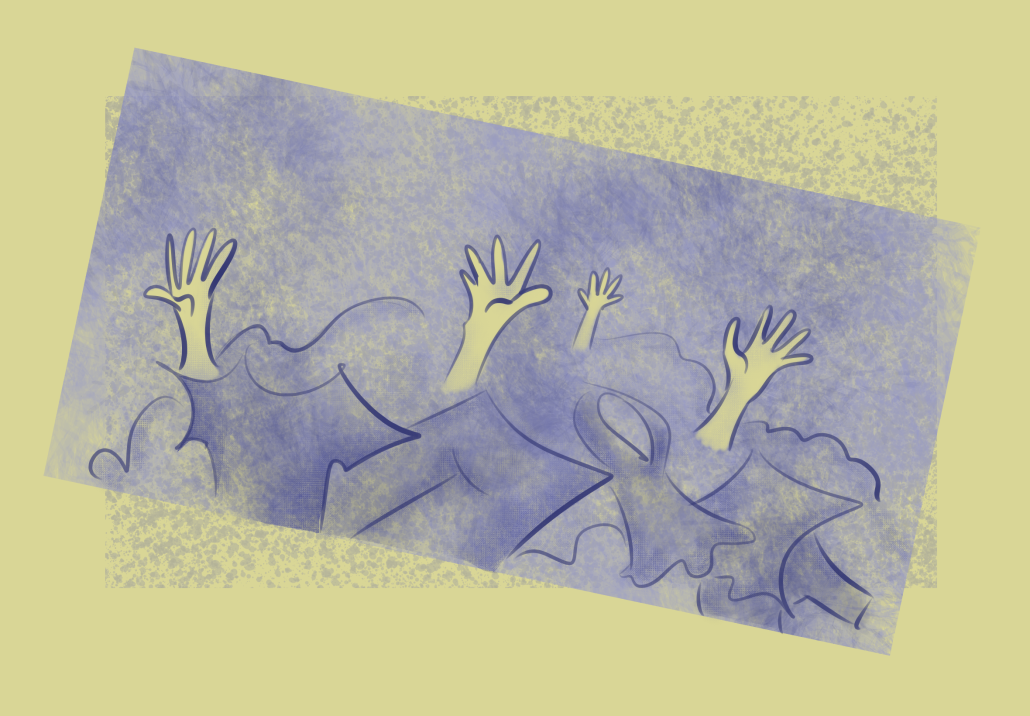That’s Fashion, Sweetie: Politics are in, pushovers are out

Louis Vuitton Moet Hennessy shares increased by 5% April 13 after quarterly sales reports resulted in “record market valuation of 432 billion.” Especially with the April 5 announcement of LVMH chairman Bernard Arnault surpassing Elon Musk as the world’s richest person, it seems that LVMH — and Arnault — are on top of the world.
In reality, they couldn’t be far from it.
On France’s 12th day of demonstrations, which have occurred since March, protestors stormed LVMH’s headquarters. Angry about Arnault’s increasing wealth and President Emmanuel Macron’s recent push to raise the retirement age from 62 to 64, the protesters angrily demanded their rich leaders to better support and contribute to pensions.
Many comments on Instagram were in support of the protestors. While some called out Business of Fashion for utilizing clickbait for article views, claiming that LVMH could never be “vulnerable” with Arnault’s wealth and the reported sales numbers, my favorite comment had to be “was Emily there.”
Still, though, I find this demonstration and its lack of large media coverage unsurprising. One, because it’s not traditional politics — such as passing of laws or crime — and two because fashion and wages is not a new hot topic.
The fashion industry, unfortunately, is notorious for low wages and falling into the “struggling artist” stereotype in early stages of careers in the industry. Maybe the grind culture for very little pay, or even unpaid internships, have become more perpetuated with media interpretations like “The Devil Wears Prada” (2006) or Jenny Humphrey in “Gossip Girl,” but it needs to stop. Yes, time is experience, but time is also money.
On the flip side, fashion can be an incredibly well-paying and lucrative industry. Even if design or creativity isn’t your thing, top buyers, trend analysts and e-commerce managers get paid incredibly well.
When talking about this further with some of my fashion-obsessed friends, one mentioned how they were surprised that fashion had turned political. But the reality is that everything, including fashion, has always been political.
Whether the politics of fashion were literal — like colors of red versus blue on politicians or literal statements on red carpets, like Alexandria Ocasio-Cortez at the 2020 Met Gala — politics happen on the runway too. Some come in the form of protesting brands themselves, an iconic one being Gisele Bündchen at the 2002 Victoria’s Secret fashion show being ambushed by PETA and their “Gisele: Fur Scum” signs after Bundchen’s new contract with Blackgama, a furrier. But political statements also occur on the runway from models and designers themselves.
At Gucci’s Spring Summer 2020 show, model Ayesha Tan Jones wrote “mental health is not fashion” on their palms, directly commenting on the show’s garments of straightjackets and sandals as they stood on a conveyor belt. Designer Prabal Gurung used the finale of his Fall 2017 collection to put political statements on T-shirts for the models to wear, donning statements like “the future is female,” “our minds our bodies our power,” “voices for choices” and “yes, we should all be feminists.”
What I’m trying to get at is that we don’t tend to see, or rather remember, the delicate dance of politics and political statements in certain industries, such as art and fashion, because of their halo effect. Remember, readers, just because something — or someone — is pretty and packaged up with silk bows doesn’t mean that they can’t give more than just surface-level impressions.
Yes, fashion is beautiful dresses and stirrup cut jeans, as well as self expression and growing identities, but fashion is also loud and proud, bold and unafraid to speak its various and ever changing minds — we just need to listen instead of immediately dismissing.
Especially because this column has expanded past trends on the runway, I hope that you’ve begun to see how fashion manifests itself into every aspect of our lives: from mindset to the metaverse to maybe even meatloaf. As it becomes a growing part of your life — or not, what is and isn’t important is strictly up to you — you can’t ignore the darker and possibly uncomfortable side of the industry.
Maybe this vast emphasis of looking at the story as a whole comes from my recent lecture on zero-trust network models in my enterprise security class, but I can’t help but think about one of my favorite movies “Flipped” (2010) and its discussion over whether or not people are more than the sum of their parts (very Aristotle, I know). Still, this is an important understanding in life — with fashion, and our relationships with our friends, family and loved ones.
Nobody is going to be perfect. Whether mistakes stem from unfair expectations or false pretenses, everyone deserves a chance to be considered, with both their good and bad, before being chosen or their role decided. Just as we have mouths to speak, we have ears to hear and eyes to observe. Understanding, digestion and autonomous thought is such a privilege, and as my late English teacher taught me: “To assume makes an ass of me and you.”
In a more Y2K translation, Paris Hilton would say, “That’s not hot.”
But advocating for what you believe in? Educating yourself and considering before taking action? Paris (and I) agree: That’s hot.
Hadyn Phillips is a sophomore writing about fashion in the 21st century, specifically spotlighting new trends and popular controversy. Her column, “That’s Fashion, Sweetie,” runs every Tuesday.

